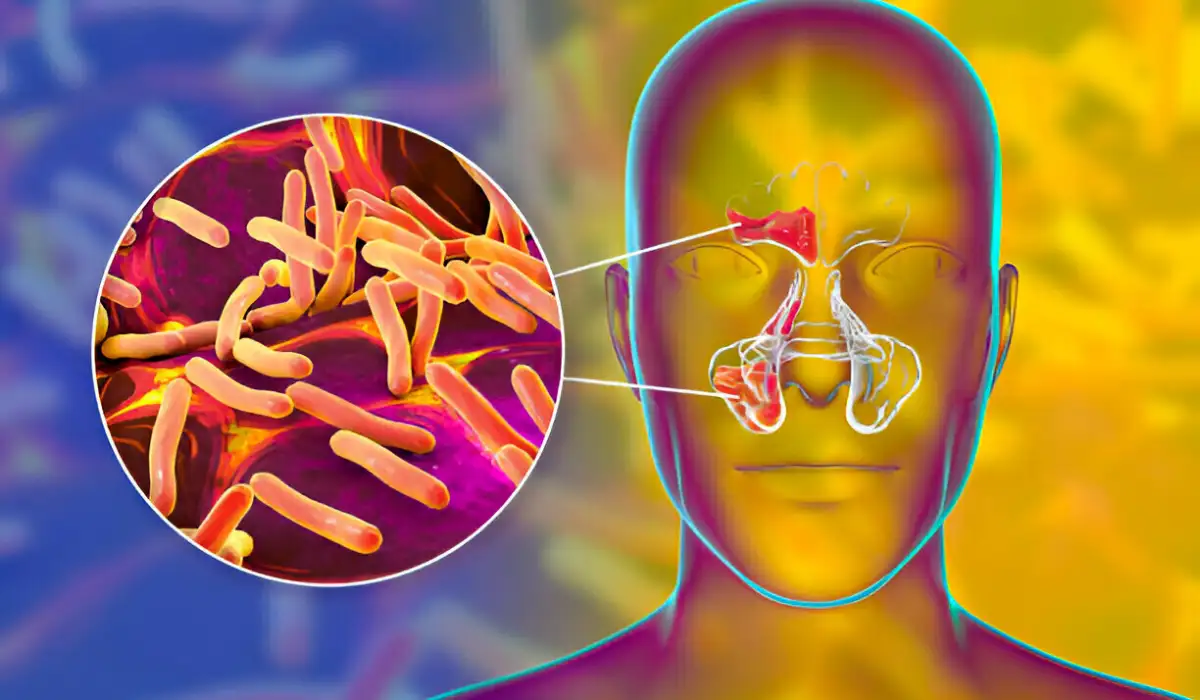Sinusitis, commonly known as a sinus infection, is a prevalent condition that affects millions of people worldwide. Understanding whether sinus infections are contagious is crucial for effective prevention and management. Characterized by inflammation of the sinus cavities, this condition can lead to discomfort, headaches, nasal congestion, and even facial pain. Yet, amidst the myriad of symptoms and treatments, a lingering question persists: Are sinus infections contagious?
In this exploration, we embark on a journey to unravel the mysteries surrounding sinusitis contagion. Delving into the complexities of sinus infections, we navigate through scientific literature, medical insights, and common misconceptions to shed light on the contagious nature of this prevalent malady.
What Is Sinusitis Infection?

Sinusitis refers to the inflammation or swelling of the tissue lining the sinuses. These are the air-filled cavities located in the bones around the nose and eyes. When these cavities become blocked and filled with fluid, they can become a breeding ground for bacteria, viruses, and fungi, leading to infection.
Types of sinusitis
There are several types of sinusitis, classified based on duration and cause.
- Acute sinusitis typically lasts less than four weeks and is often caused by a viral infection, such as the common cold.
- Chronic sinusitis lasts longer than twelve weeks and may be caused by infections or other underlying conditions, such as allergies or structural issues in the nasal passages.
How do i know if i have sinusitis?
Sinusitis can manifest with various symptoms, including:
- Nasal congestion
- Facial pain or pressure
- Headache
- Thick yellow or green nasal discharge
- Postnasal drip
- Cough
- Reduced sense of smell and taste
- Fatigue
- Fever
If you experience these symptoms, especially if they persist for more than ten days or worsen over time, it’s essential to consult a healthcare professional for an accurate diagnosis and appropriate treatment.
Symptoms of sinusitis infection
Sinusitis can be caused by viral, bacterial, or fungal infections, as well as allergic reactions or structural issues in the nasal passages. The symptoms may vary depending on the underlying cause and the type of sinusitis. While viral sinusitis often resolves on its own with supportive care, bacterial sinusitis may require antibiotics.
Is sinusitis contagious?
The contagiousness of sinusitis depends on its underlying cause. Viral sinusitis, which is the most common type, can be contagious. Viruses that cause colds and flu can also trigger sinus infections, and these viruses are highly contagious. However, once the acute phase of the viral infection passes, the sinusitis itself may not be contagious.
Bacterial sinusitis can also be contagious, especially in cases where the infection is spread through respiratory droplets. Close contact with an infected individual or exposure to contaminated surfaces can facilitate the transmission of bacteria.
How is sinusitis spread?
Sinusitis can be spread through direct or indirect contact with respiratory droplets from an infected individual. This can occur when an infected person coughs, sneezes, or talks, releasing tiny droplets containing the virus or bacteria into the air. These droplets can then be inhaled by others or land on surfaces where they can survive for a period, allowing transmission through contact.
How long does a sinus infection last?
The duration of a sinus infection varies depending on the type and severity of the infection, as well as individual factors such as overall health and immune function. Acute viral sinusitis typically resolves within two weeks with supportive care, while bacterial sinusitis may require antibiotics and can last several weeks if left untreated.
How is a sinus infection diagnosed?
A healthcare provider can diagnose sinusitis based on a combination of medical history, physical examination, and sometimes imaging studies such as CT scans or nasal endoscopy to assess the extent of inflammation and identify any underlying structural issues.
What happens if sinusitis is left untreated?
Untreated sinusitis can lead to complications such as chronic inflammation, recurrent infections, the spread of infection to nearby structures like the eyes or brain, and the development of secondary conditions such as asthma or nasal polyps.
How can i prevent sinus infections?
Preventing sinus infections involves adopting healthy habits and minimizing exposure to potential triggers. Here are some tips for prevention:
- Practice good hand hygiene by washing hands frequently with soap and water or using hand sanitizer.
- Avoid close contact with individuals who have colds, flu, or other contagious illnesses.
- Use tissues or the crook of your elbow to cover your mouth and nose when coughing or sneezing.
- Keep surfaces clean and disinfect frequently touched objects and surfaces.
- Stay hydrated and maintain a healthy diet to support immune function.
- Manage allergies effectively by avoiding triggers and using medications as prescribed.
- Consider using a humidifier to keep indoor air moist, especially during dry weather or in heated indoor environments.
How can i treat a sinus infection at home?
The various approaches for treating a sinus infection at home, emphasizing the importance of discerning between bacterial and viral infections to determine whether antibiotics are necessary. Let’s break down the key points:
Using antibiotics for viral infections is ineffective and contributes to antibiotic resistance, which is a growing concern in healthcare. This highlights the importance of proper diagnosis by a healthcare professional.
Natural Treatments include nasal irrigation (using a saline solution), steam inhalation, and rest. These methods can help alleviate symptoms and promote recovery without the need for antibiotics.
Home treatment steps
Beyond antibiotics, several self-care measures can be taken at home:
- Nasal irrigation with a warm saline solution to flush out mucus and irritants.
- Steam inhalation through the nose to relieve congestion and promote drainage.
- Over-the-counter allergy treatments if allergies contribute to sinus issues.
Decongestants to reduce inflammation in the sinuses and nasal passages, relieving stuffiness. However, caution is advised with decongestant sprays due to the potential for rebound swelling after prolonged use.
Conclusion
Overall, the article emphasizes a balanced approach to treating sinus infections, considering both natural remedies and, if necessary, antibiotics, while being mindful of antibiotic stewardship to combat resistance. It also underscores the importance of consulting a healthcare professional for proper diagnosis and guidance on treatment options.
By taking these preventive measures, you can reduce your risk of developing sinus infections and help protect others from contagious illnesses. If you suspect you have sinusitis or have been exposed to someone with a sinus infection, consult a healthcare professional for guidance on diagnosis and treatment. Early intervention can help alleviate symptoms and prevent complications, ensuring a prompt recovery.
References
- Shaikh N, Wald ER, Jeong JH, Kurs-Lasky M, Nash D, Pichichero ME, Kearney DH, Haralam MA, Bowen A, Flom LL, Hoberman A. Development and Modification of an Outcome Measure to Follow Symptoms of Children with Sinusitis. J Pediatr. 2019 Apr;207:103-108.e1.
https://pubmed.ncbi.nlm.nih.gov/30545562/ - U.S. National Library of Medicine: Sinusitis
https://medlineplus.gov/ency/article/000647.htm





